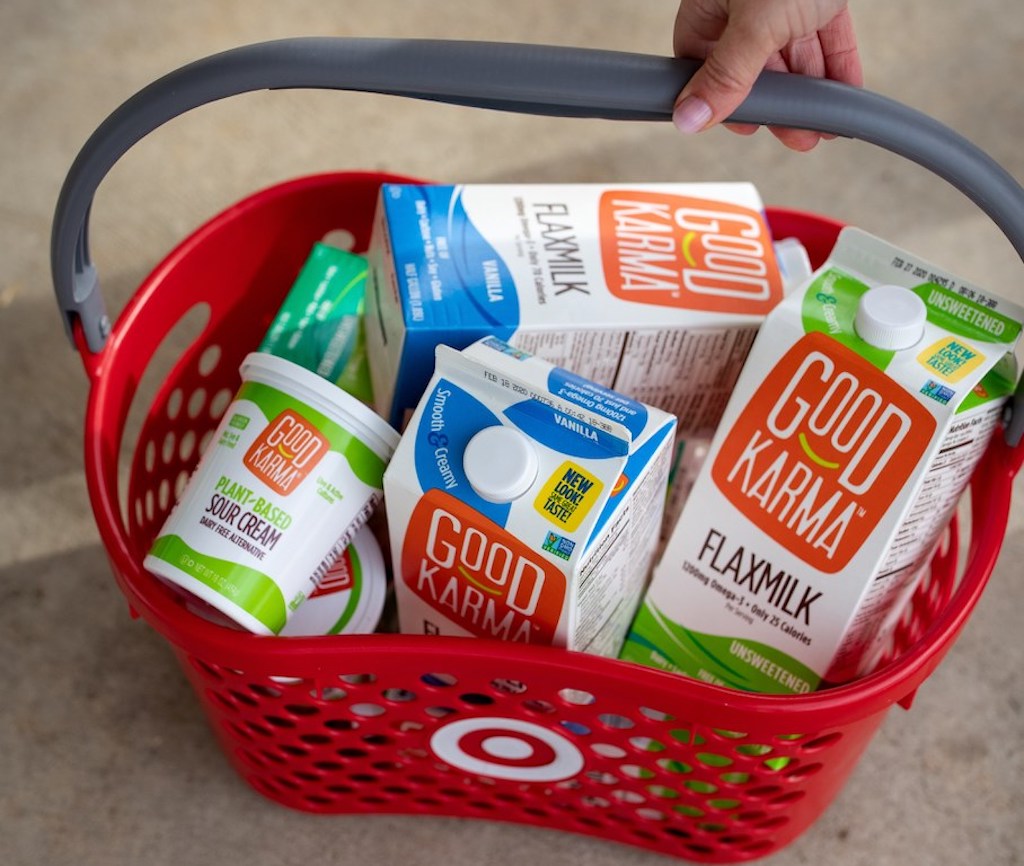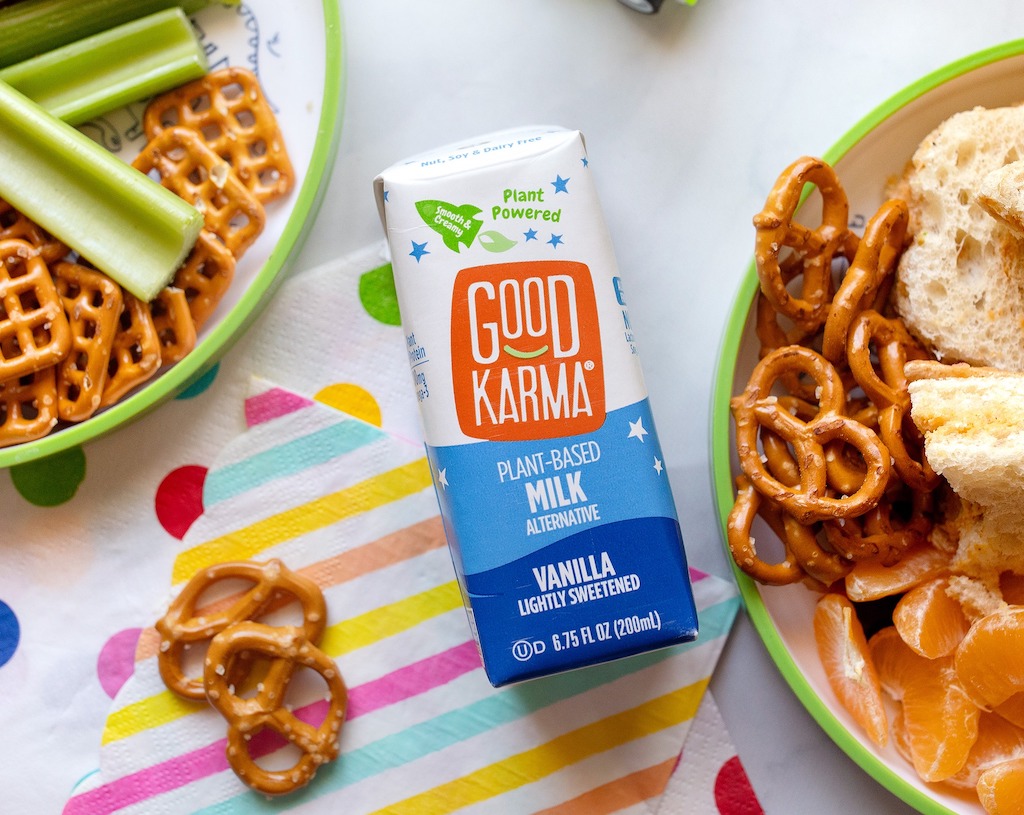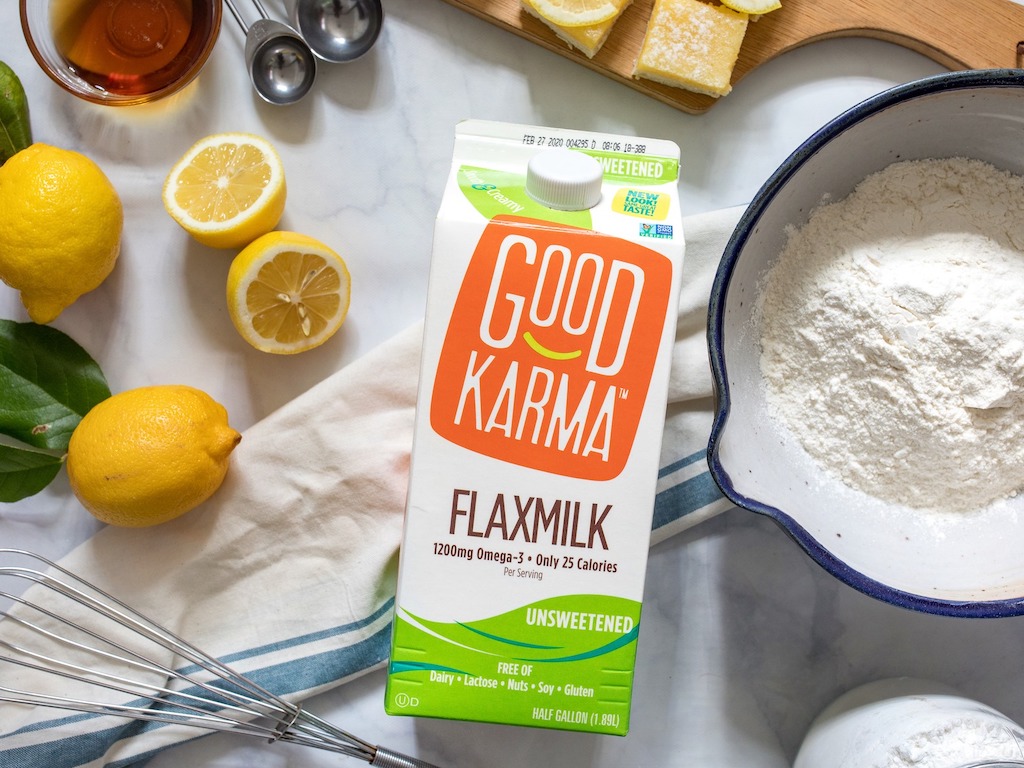3 Mins Read
Vegan flaxseed milk brand Good Karma Foods has been able to regain majority ownership from Dean Foods, the recently bankrupt dairy giant, with a new round of investment. Good Karma Foods will continue to operate as an independent company led by its existing team, and will use the new capital to expand distribution and its plant-based milk offerings.
Good Karma Foods announced that it has repurchased majority ownership held by Dean Foods, the largest producer of dairy milk in the U.S. that filed for bankruptcy last November due to shifting consumer preferences in favour of plant-based alternatives. The Boulder, Colorado-based vegan flaxseed milk brand also revealed that it has secured an undisclosed amount of “significant” funding from early-stage food tech investor Valor Siren Ventures (VSV) and existing investor 2x Consumer Products Growth Partners.
We could not have found a better partner than Valor Siren Ventures to help us bring more plant-based goodness to more places, and [we] are honoured to be among the mission-driven teams and brands in their portfolio.
Doug Radi, CEO of Good Karma Foods
Founded in 2012, Good Karma Foods was one of the first brands to develop a flax-based milk alternative that is free from all major allergens, yet could deliver the same nutritional value, taste and functionality of dairy milk. The brand has since expanded its product line with flax-based dairy-free probiotic yoghurt, yoghurt drinks and dips such as ranch and sour cream.

From 2017 onwards, Dean Foods had made multiple investments into the brand, ultimately becoming its majority shareholder. According to Good Karma, the recent bankruptcy filing presented an opportunity to buy-out Dean Foods’ interests and “refocus” with the support of its new investors.
In a press release, the company said that it will be using the capital injection to “innovate in a variety of plant-based categories”, speed up distribution and expand its brand-building while continuing to operate as a company helmed by its existing leadership team.
“We could not have found a better partner than Valor Siren Ventures to help us bring more plant-based goodness to more places, and [we] are honoured to be among the mission-driven teams and brands in their portfolio,” said Doug Radi, CEO of Good Karma Foods.
Good Karma Foods says that demand for allergen non-dairy alternatives such as its flaxseed milk is surging, especially in the wake of the coronavirus pandemic, which has raised consumer awareness of health and food safety. The company also cited strong demand growth due to increased concerns over the environmental footprint of animal-based dairy products.

Read: Dairy industry may be wiped out by pandemic & rising plant-based trend
In an analysis by non-profit organisation GRAIN, the top 10 of the world’s biggest dairy corporations are responsible for generating enough carbon emissions to match half of France’s total carbon output. In addition to spewing out greenhouse gases, traditional dairy farming depletes the soil of its nutrients, contributes to water pollution, and is an inefficient use of land as well.
Amid the awry outlook for the big dairy industry, Good Karma Foods isn’t the only plant-based brand seeing an investment pump, even during the market volatility induced by the pandemic. In June, vegan cheese brand Good Planet Foods closed a US$12 million Series A, while Chinese confectionery firm Multizen backed pea milk startup Ripple Foods.
Cell-based non-dairy alternatives have also garnered greater attention from investors, with Singapore-based lab-grown milk startup TurtleTree Labs scoring US$3.2 million in seed funding in the same month.
All images courtesy of Good Karma Foods.




